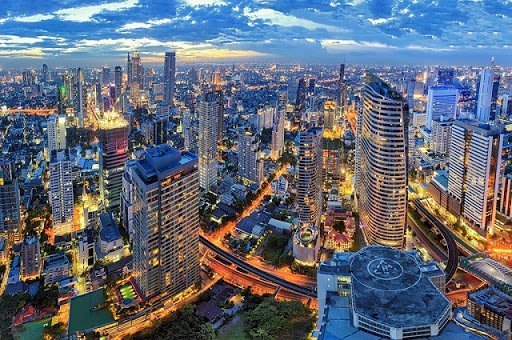Table of Contents
Is Thailand Real Estate Investment proofed?
Where does your mind go when you think of real estate markets attractive to foreign investors? The Philippines have turned high-profit margins for many an investor.
Singapore and Hong Kong will always supply a demand for housing as their nations continue to urbanize. But there’s another potential market entering the big stage with attractive opportunities: have you considered Thailand?
Thailand is still classified as a developing nation, but a savvy investor knows that rapid development means rich opportunity. While potential abounds, Thailand is still a challenging market to break into, and a foreign investment will require careful consideration.
Is Thailand’s real estate the perfect place to get a return on your investment?

The Pros for Thailand Real Estate Investment
Thailand is a developing nation and a flourishing one, with a reliable growth GDP every year since 1997. The Thai are getting richer every year, but economic growth alone doesn’t mean good real estate and housing. What else can the Thai market offer?
1. Resilience
Thailand’s Real Estate market’s greatest strength is its tried and tested resilience. Property demand and land values have rebounded from multiple crises over the past three years: the market has weathered everything from a major political upheaval to the tragic bombing in August, and come out stronger. In a shaky global economy still struggling to recover from the financial crisis of 2009, that ability to bounce back is a rare and attractive quality to the savvy investor.
2. Continued Growth
In addition to its ability to weather setbacks, Investment in Thailand Real Estate is one of the most reliably growing markets in the world.
Prices show continued growth year on year, across all sectors of the market: condominiums have posted between five and twelve percent annual price growth every year since 2008, with no sign of slowing down. Even luxury properties, (above US$300,000, or around ten million baht) a previously sluggish segment of the market, are showing growth (and attracting foreign investment dollars) for the first time since 2013.
After two years in which no new Phuket luxury properties became available, 53 new properties went on the market in 2015.
And that still pales in comparison to Bangkok, where nearly 1,000 new luxury units are available for purchase. At any investment level, Thai real estate can be relied on to keep up a steady price increase.
3. Infrastructure Growth and Investment
As a developing nation, Bangkok has suffered from some infrastructure issues…but 2016 may be the year all that changes.
Bangkok is set to become the central hub for an ambitious Southern Asia rail system connecting multiple nations of southeastern Asia, and financed by the Thai and Chinese governments. The government is extending its mass transport investments in Bangkok as well, with plans for new motorways and local rail systems.
That new infrastructure investment has developers excited and planning for big projects and record incomes in 2016.
The Cons for Thailand Real Estate Investment
There’s no such thing as a perfect market, and Thailand is no exception. Real estate is somewhat loosely regulated, which is both a blessing and a curse to investors.
No cooling measures to slow down growth like Hong Kong and Singapore, but that continuing rapid growth does imply some risk, which must be considered along with other drawbacks of the Thai market.
1. Foreign restrictions
Thailand Real Estate is unregulated, but they place tight restrictions on foreigner’s ability to own property.
Keeping the majority of holdings domestic helps the market retain that valuable stability, but it also represents a significant challenge for would-be investors. Condos are one of the few properties that foreigners can own the freehold, as long as over 50 percent of the condos in the development is owned by natives.
This exception makes owning and renting condos a popular foreign investment.
2. Steep Competition
Infrastructure investment is feeding both development and demand for real estate, especially in the Bangkok area, but there is steep competition for rentals. A quick look at a property search site like Property Guru turns up thousands of properties available for purchase, rent or trading, and that makes it difficult for foreign investors to get a foot in the door.
If you’re hoping to rent condominiums, you’ll be competing with a rapidly growing number of local owners who have a steep advantage in attracting local business. Combined with high prices that make for high initial investment, it can be challenging to turn a profit in these high activity areas.
Real Estate Investment
Thailand Real Estate is a market with huge potential, but restrictions and competition may make turning a profit a challenge.
However, Thailand’s growing infrastructure and surprisingly resilient market make this investment a relatively stable one, especially compared to the risk involved.
Liberal Estate (Thailand). Co., LTD.
Kung +66(0)84-859-8689
Whatsapp: +66(0)84-859-8689
Office: +66(0)96-945-8392
Line@: @leth
Facebook Fanpage: https://www.facebook.com/LiberalEstateTH/
Facebook Inbox: m.me/LiberalEstateTH
Website: www.liberalestateth.com




